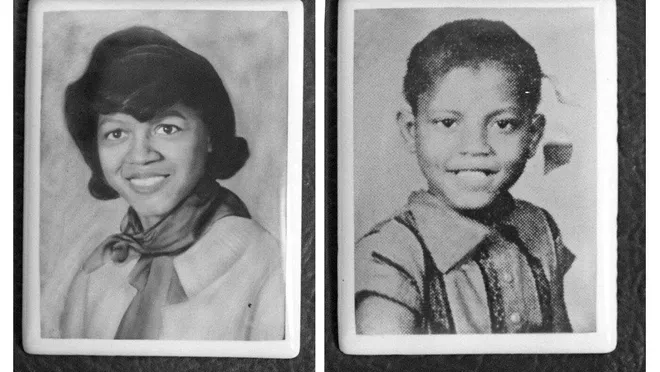Ketanji Brown Jackson warns nation to confront history at church bombing anniversary event
US Supreme Court Justice Ketanji Brown Jackson, the first Black woman appointed to the high court, warned Americans Friday not to forget the atrocities of the country's past and advocated for robust education on Black history for all children.
She made the remarks at a gathering marking the 60th anniversary of the bombing of the 16th Street Baptist Church in Birmingham, Alabama, when Ku Klux Klan members killed four young Black girls in a terrorist attack that rocked the nation.
"Today, we remember the toll that was paid to secure the blessings of liberty for African Americans, and we grieve those four children who were senselessly taken from this earth and their families and robbed of their potential," she said.
The bombing was two weeks after Martin Luther King, Jr., gave his historic "I Have a Dream" speech in Washington, D.C., amid a painful year in civil rights history. Civil rights leader Medgar Evers was killed months before by a white supremacist, and President John F. Kennedy would be assassinated by the year's end.
The girls killed in the church attack – Denise McNair, 11; Cynthia Wesley, 14; Carole Robertson, 14; and Addie Mae Collins, 14 – were in the basement of the church the morning of Sept. 15, 1963, getting ready for Sunday service when when sticks of dynamite planted by Klansmen went off under the steps of the building. Sarah Collins Rudolph, Addie Mae's sister, was also in the room and survived with serious injuries.
The girls' names were repeated again and again during the remembrance event.
“We must continue to fight, and we must continue to do it in their name,” said Randall Woodfin, mayor of Birmingham.
At 10:22 a.m., the moment the bomb detonated six decades ago, the congregation read the names of those killed that day as bells tolled.
In the chaos after the bombing, two other Black children were killed the same day: 16-year-old Johnny Robinson, who was shot by a police officer, and 13-year-old Virgil Ware, who was shot by a white teen. They were also recognized Friday.

Three Klansmen were eventually convicted in the bombing, but not until years later. Robert Chambliss was convicted in 1977, and Thomas Blanton and Bobby Frank Cherry in the early 2000s.
"It was a clear act of racial hatred," the FBI said.
The 16th Street Baptist Church had been a key mass meeting spot during the Civil Rights Movement and the target of frequent bomb threats.
Eight thousand people attended the funeral for the girls. In the aftermath, King sent a telegram to the state's then-Gov. George Wallace, who earlier that year had proclaimed "segregation forever."
"The blood of our little children is on your hands," King wrote.
Justice Jackson: We must face uncomfortable truths
The nation has come a long way in 60 years, Jackson said, noting that it wasn't until 1966 that Constance Baker Motley became the first Black woman federal judge. Now, there are 59 serving. But people cannot shy away from its history, she said.
Jackson, raised in Florida, was in Alabama for the first time Friday, but said her parents had instilled in her as a child the deep significance of the state's bloody fight for freedom. That same knowledge is owed to future generations, she said.
"Knowledge of the past is what enables us to mark our forward progress," Jackson said. "If we’re going to continue to move forward as a nation, we cannot allow concerns about discomfort to displace knowledge, truth or history."
Atrocities like the one that happened at the church are difficult to think about. "But I also know that it is dangerous to forget them," she said.
"We have to own even the darkest parts of our past, understand them and vow never to repeat them," Jackson said.
'Eyes of the world' were on Birmingham
The bombing became a symbol of the reality faced by Black Americans in the fight to end segregation, in what was at the time the most segregated city in the nation.
"The horrific tragedy that occurred within these walls focused the eyes of the world on Birmingham, bringing into sharp clarity the injustices of our past," U.S. Rep. Terri Sewell, D-Ala., said.
And for those in Birmingham, Sewell said, it reminds people that advancements in civil rights came at the cost of the sacrifices of others.
"Because of the sacrifices of the little Black girls, today we have a Black girl that is vice president of the United States. We have another Black girl who is now a Supreme Court justice. And I get to walk the halls of Congress as Alabama’s first Black congresswoman," Sewell said.
More:MLK’s ‘I have a dream’ speech looms large 60 years later
Contributing: The Associated Press
Disclaimer: The copyright of this article belongs to the original author. Reposting this article is solely for the purpose of information dissemination and does not constitute any investment advice. If there is any infringement, please contact us immediately. We will make corrections or deletions as necessary. Thank you.





